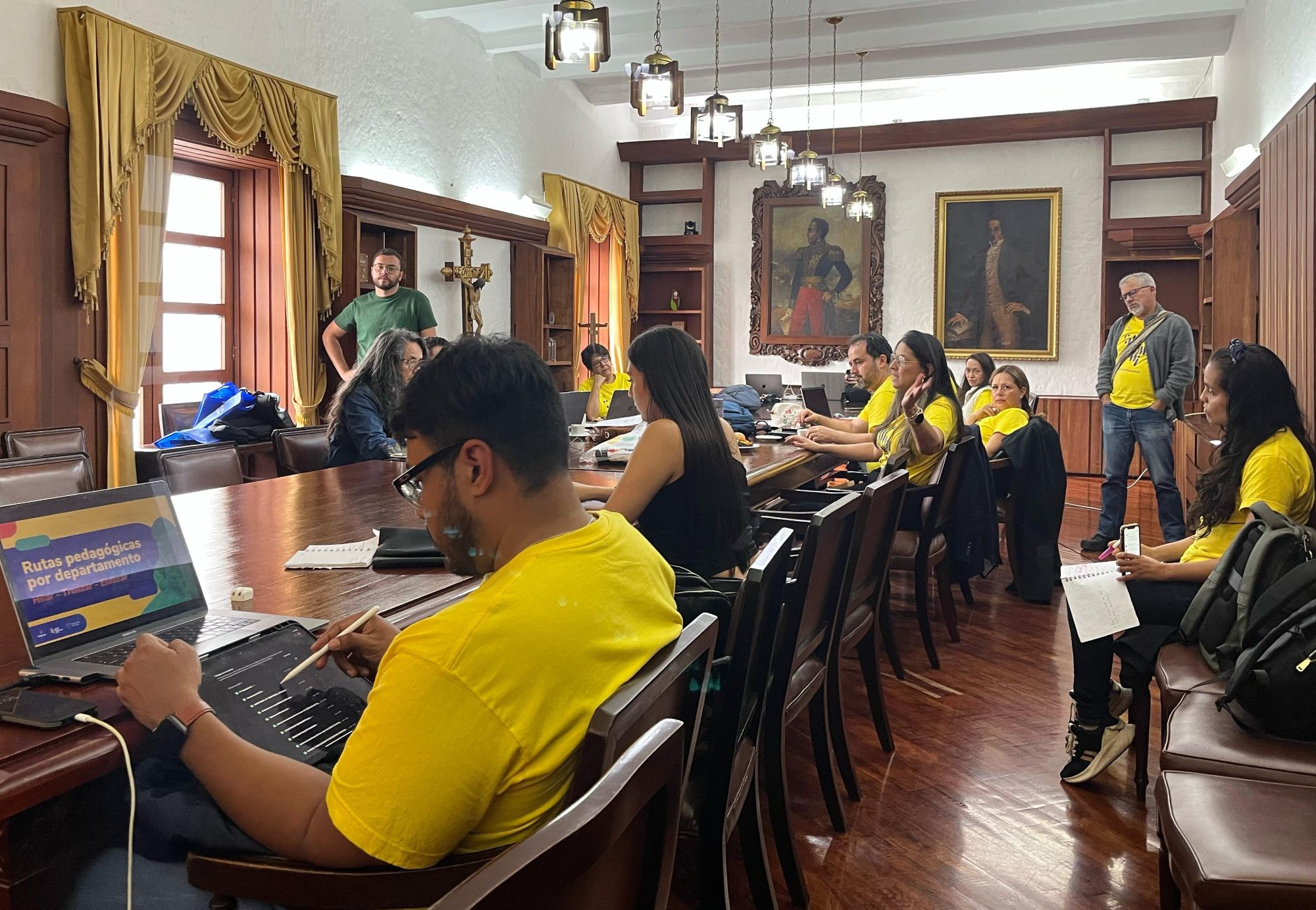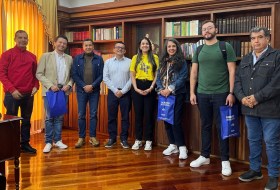News
The University of Cauca and the Ministry of Cultures consolidate progress in the implementation of the presidential program Sounds for Peacebuilding in Zone 6
The meeting, held in the Boardroom of the Rector’s Office, reaffirmed the joint commitment to education and culture, recognizing the importance of this alliance that is transforming realities in the communities of southwestern Colombia.
On April 4th, Popayán was the epicenter of a key event for the presidential program Sounds for Peacebuilding. The University of Cauca, the institution leading this important educational strategy in the departments of Cauca, Huila, and Nariño (Zone 6), welcomed the official visit of a delegation from the Ministry of Cultures, Arts, and Knowledge. The meeting, held in the Boardroom of the Rector’s Office, reaffirmed the joint commitment to education and culture, highlighting the significance of this partnership that is transforming realities in the southwestern communities of the country.

Provided photo
Sounds for Peacebuilding currently represents the country's most ambitious cultural initiative. Its implementation, in partnership with seven public universities, enables the connection of experiences, territories, and knowledge that reflect Colombia’s geographical and cultural diversity.
In this context, the University of Cauca stands out as a fundamental strategic ally for territorial harmony, leading an unprecedented program where education and the arts serve as powerful tools for social transformation and the building of citizenships for peace.

Provided photo
Results that Transform Lives
During the event, an impact report of the program was presented. By 2024, the implementation of the educational strategy had benefited 25,711 children, adolescents, and young people in 191 educational institutions, achieving 57% of the target population coverage and 84% of the goal for prioritized educational institutions.
For 2025, the program in Zone 6 has already benefited over 8,000 participants, reflecting the important work of the territorial teams and the high level of engagement from the identified children, adolescents, and youth.
Additionally, there has been significant progress 93% in the hiring of selected human talent so far in 2025. As of March, the legal-administrative team of Zone 6 had successfully managed the official hiring of 233 artist-educators and knowledge bearers, 13 managers, and 15 territorial assistants, strengthening the program’s presence in 75 municipalities across the three departments. These efforts have consolidated the program's solid presence through the formal hiring of those leading the initiative in the communities.
Context of Implementation in High-Risk Areas
According to the report presented by the Zone 6 team, between February 28 and March 31, 2025, 66 alert events were reported in prioritized municipalities, with Cauca being the most affected (31 alerts), followed by Nariño (29) and Huila (6). The incidents include armed actions, forced displacements, threats against social leaders, environmental conflicts, and the presence of landmines—realities that directly impact community well-being and pose risks to the human teams working in the municipalities.

Provided photo
Implementing a program of this magnitude requires acknowledging the multiple complexities of the territories and the fundamental role of the University of Cauca as a strategic ally in the region, highlighting its technical, administrative, and pedagogical capacity to operate a program demanding sensitivity, rigor, and deep community engagement.
Culture and education are tools for protection, healing, and resistance.
Despite the challenges, the program has maintained an active presence in high-complexity areas, demonstrating not only the management capacity of the territorial teams but also their courage and sensitivity to carry out educational processes in adverse conditions. The program’s intervention in municipalities classified as high or medium conflict zones strengthens the institutional commitment to bring art, culture, and education to the country’s historically most neglected corners.

Provided photo
Territorial Commitment and Management with a Social Focus
The meeting also provided a space to transparently review progress on payments, adjustments to the program’s operational dynamics, and territorial specificities. The commitment of the Zone 6 coordination team was highlighted in consistently supporting territorial teams, embracing each challenge, strengthening leadership, and promoting collective capacity-building processes in each community. These actions not only promote local learning but also generate structural transformations in regional development.
Figures That Speak of Impact
- 817 educational-artistic sessions conducted.
- 153 educational institutions with active agreements.
- 19 induction workshops for territorial teams held so far.
Institutional articulation, ensuring the participation of artist-educators in the diploma course "Artistic and Cultural Practices for Life and Peace," strengthening their pedagogical skills nationally to bring art to every corner of the country.
Diversity, Inclusion, and Territory
The program’s differential approach ensures representation and equity in Zone 6:
16.6% of participants belong to Indigenous communities,15.3% to Afro-Colombian, Black, or Raizal communities, the remainder are from peasant and urban populations.
These are important figures to understand and appreciate the multicultural diversity of the three departments.

Provided photo
Successful Evaluation and Socialization Session
The implementation of Sounds for Peacebuilding represents a major educational initiative that integrates traditional music, ancestral knowledge, local narratives, and collective creation processes, promoting memory, rootedness, and a sense of belonging in communities.
This meeting with the Ministry of Cultures, Arts, and Knowledge reaffirms the University of Cauca’s commitment to positively impact the lives of children, adolescents, and youth in diverse communities. It reasserts that peace is sung, felt, and built from the territories—and that art, education, and culture will continue to be the most powerful languages to sow hope throughout Colombia.
From Zone 6, we will continue to strengthen this great national initiative, convinced that culture is a vital engine for healing wounds, imagining possible futures, and transforming the country from its roots.
Written by: Sounds for Peacebuilding – Zone 6


